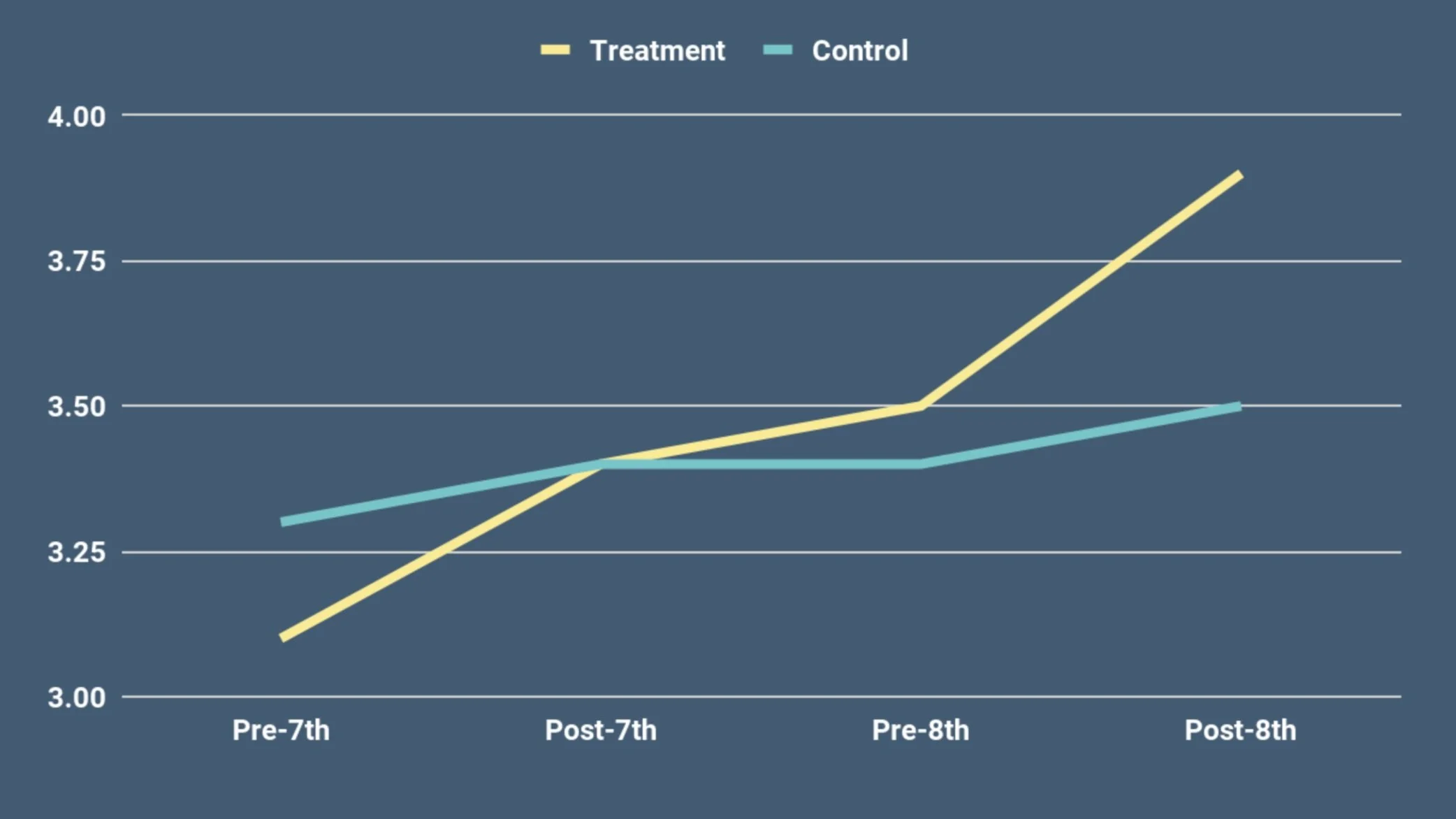
Learning Outcomes
Our research and evaluation partner for Design Your Neighborhood Nashville is Vanderbilt Peabody College, the College of Education and Human Development. Dr. Brian Christens and his team of graduate students oversee the Nashville evaluation. Our partner for Design Your Neighborhood Chattanooga is Sewanee College, where Dr. Katy Morgan oversees the research and evaluation.
Systematic evaluation allows us to measure our impact deliberately and achieve the evidence-base needed to scale the program across the state. Through this, findings from the research will be disseminated in peer-reviewed journals in order to increase the access of the curriculum beyond Tennessee.
Teachers may choose to teach Design Your Neighborhood, but those who also agree to the research and evaluation will receive a $100 stipend, and a classroom incentive. The learning outcomes we have achieved are thanks to teachers who have taught the curriculum and agreed to survey their students since 2018!
The Design Your Neighborhood curriculum helps youth not only feel more pride in their communities, but also helps them realize the unique role they have in making change in those communities.
Highlights from Survey Data
Agency in Community
“There are more ways to make things better than I had thought. It’s not always wait until you get older and vote, or right now all you can do is protest. There is other ways, like more creative ways to make a change. Our designs got us noticed, and then we can talk to our council person…about what we need in our neighborhood.”
Through steady exposure to the Design Your Neighborhood curriculum, there is an increase in students’ understanding of their own agency in community compared with students who do not go through the curriculum.
Youth are often asked what they want to be when they grow up, but the Design Your Neighborhood curriculum asks them, “what can you do for your community right now?” Students recognize that, as a young person, they are still a community member with power to make a difference.
Sociopolitical Control Measure
“Kids don’t have rights but we have power. Have you ever seen an adult out in the neighborhood? No. Like when we did the community research, [adults] aren’t out here like we are, so [kids] see things, and we know…what needs to change or stay the same. And for kids, we also work together and get along more than adults sometimes do, so we can actually make a change.”
Cognitive Empowerment Measure
Neighborhood Belonging
“I wish Nashville would slow down and think about everything before just making changes and getting rid of the culture. So I wish Nashville would recognize the fact that we lose so much culture and diversity when we get rid of houses and restaurants and businesses just ‘cause they are a little old. It’s the people that create the culture and diversity.”
After 2 years of Design Your Neighborhood curriculum, students have an overwhelming increase in emotional attachment to their communities, or neighborhood belonging. This is especially critical in places that see “brain-drain”, where youth feel motivated to leave their communities for higher education and never return.
The Design Your Neighborhood curriculum may help create a greater sense of empowerment to enrich their home communities.




